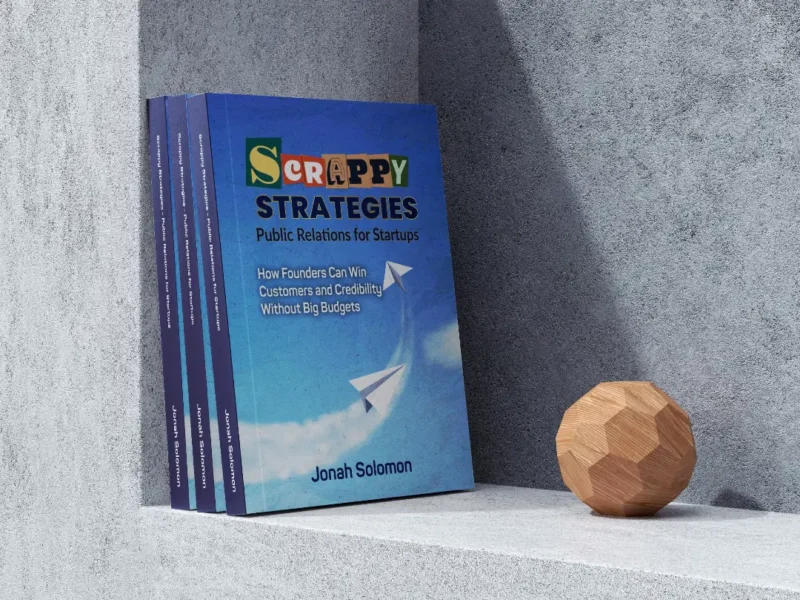Every once in a while, a business book comes along that doesn’t try to impress you with jargon or overwhelm you with frameworks. Instead, it sits you down like a trusted colleague and says, “Here’s how to stop struggling and start telling your story properly.” Jonah Solomon’s ‘Scrappy Strategies’ is exactly that kind of book, a refreshing, clear-eyed playbook for African founders who are brilliant at what they build but often invisible to the markets they hope to serve.
Solomon understands both the media and the startup trenches. He writes with the instinct of someone who has spent years inside newsrooms and also years watching founders try (and often fail) to communicate the magic behind their ideas. What makes the book engaging is the fact it is grounded; it doesn’t assume founders have fat budgets, shiny agencies, or the luxury of endless experimentation. Instead, it speaks to a continent where great ideas often emerge from limited resources, and where visibility can be the difference between funding and failure.
The central message of Scrappy Strategies is simple: you don’t need a big budget to build credibility. What you need is clarity, intentionality, consistency and a little creativity. Solomon argues that PR is not a “post-Series-A luxury,” but a survival tool, something a startup must prioritise from day one if it wants to be taken seriously by customers, investors and partners.
One of the book’s strengths is its practical tone. It breaks down PR into manageable steps: defining your voice, shaping your narrative, understanding your audience, building relationships with journalists, and using digital platforms wisely. It does this without overcomplicating things. You can read a chapter, put the book down, and immediately apply what you’ve learned to your next email pitch, product announcement, or social media campaign.
Another delightful aspect is the way Solomon captures the uniqueness of the African startup landscape. He acknowledges the chaos, the fragmented media space, the credibility gaps, the trust issues, the noisy competition for attention. But rather than lamenting these realities, he reframes them as opportunities for founders willing to be bold and creative. In a market where few startups tell their stories well, the ones that do stand out quickly.
The book is also packed with examples, anecdotes and simple strategies that feel instantly usable. Solomon highlights how startups with limited resources have created unforgettable moments not by spending money, but by understanding what resonates with people. From viral digital campaigns to mission-driven narratives, he shows that the real differentiator in PR is not the size of your wallet but the sharpness of your message.
If there is a subtle challenge the book presents, it is this: founders must take ownership of their story. Too many startups outsource their narrative to agencies, interns or whoever can throw together a press release. Scrappy Strategies insists that founders themselves must understand why their story matters and how to communicate it with heart, confidence and precision.
The book offers a timely reminder. African innovation is accelerating, but communication is not keeping pace. Many brilliant solutions die in silence because nobody understands them, nobody hears about them, or nobody trusts the people behind them. Solomon’s book steps into that gap, giving startups a practical guide to building credibility even when everything else is still taking shape.
Of course, the book is not a miracle wand. Founders still need discipline. They still need to put in the work, build relationships, craft thoughtful messages and show up consistently. But at least now they have a roadmap built for their context, not a borrowed Silicon Valley template, but something that speaks the language of Lagos, Nairobi, Kigali, Accra and Johannesburg.
In the end, Scrappy Strategies succeeds because it demystifies PR. It strips away the intimidation and replaces it with empowerment. It shows that with the right mindset and a few smart tactics, even the most resource-strapped startup can earn credibility, win customers and shape its public image.
If you’re building anything on this continent, whether you’re a founder, a communications lead or an investor trying to spot the next breakout star, this book is worth your shelf space. It’s practical, punchy and deeply relevant. And in a noisy startup ecosystem, that’s exactly what makes it powerful.









